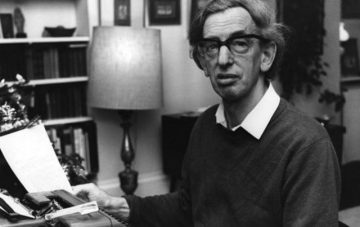 Leonard Benardo in The American Progress:
Leonard Benardo in The American Progress:
When I was in graduate school, I had the good fortune to hear Eric Hobsbawm lecture on nationalism. The year was 1992. Hobsbawm had just published his widely read and sharply debated book on the theme, and in the aftermath of the implosion in communist Central and Eastern Europe and the revival of the so-called captive nations, everyone wanted to hear his take on the subject. Hobsbawm’s talk was packed. Edward Said, the esteemed Columbia University professor of literature, arrived late and found a spot only on the floor in the back. With Hobsbawm at perhaps his reputational apogee, the event felt more like an Event, a happening of unusual significance.
Richard Evans’s appreciative and deeply researched biography of the Marxist historian and intellectual, only a handful of years since Hobsbawm’s passing, is an event in itself. Clocking in at nearly 800 pages, it is an imposing summation and a contribution to a boutique subgenre: historical biography of major historians by practicing historians.
In a university age where disciplines punish scholars for moving off-script, Hobsbawm was an old-fashioned person of letters. Trained in Cambridge, Hobsbawm ranged far and wide, disallowing the strictures of disciplinary pressure to confine his intellectual reach. No subject was too remote, no idea un-germane. Devoted to a general approach that prized economic explanation, it was never an economics at the expense of culture, politics, or ideology, even if the economic “base” generally would have primacy. There was a logic to history for Hobsbawm, a materialist logic, yet contingency was never sacrificed at its altar.
More here.
